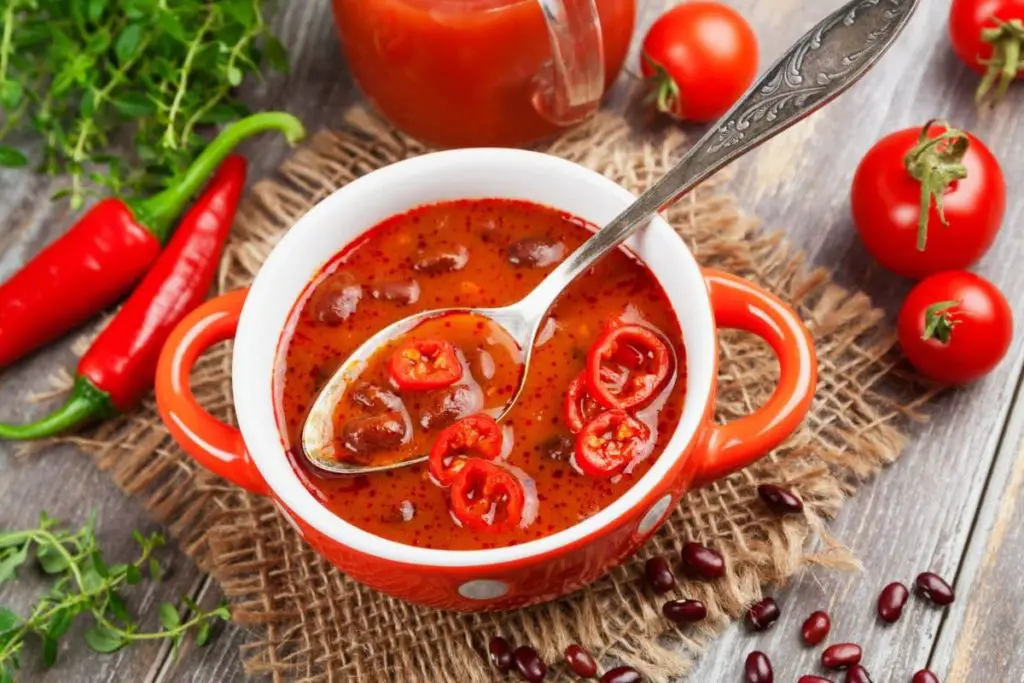If you have been fasting for an extended period, you may notice a significant decrease in hunger. The decrease is because intermittent fasting reduces the hunger hormone known as ghrelin. The combination of decreased ghrelin and increased energy levels from fasting results in appetite loss, but you do need to break your fast at some point.
To get your appetite better after fasting you can eat smaller meals more frequently, to release hunger hormones into your bloodstream regularly. If you can’t stomach solid meals right away, you can start with liquid meals, and slowly work up to eating your favorite foods to whet your appetite.
You need to build your appetite up to the point where you are receiving the nutrients you need. Not eating appropriate food after you’ve broken your fast can affect the results you’re going for, So read on for tips on how to increase your appetite.

1. Eat Smaller Meals More Frequently
Eating smaller meals throughout the day has been proven to increase appetite. The more frequently you eat, the more hunger hormones will be released in your body, thereby improving your appetite.
If you find that you are more peckish at certain times of the day, follow the urge and use the opportunity to consume extra calories. For example, if you’re having an omelet, add some additional fillings such as cheese, meats, and vegetables.
2. Try a Meal Schedule
Scheduling your meals may help if you aren’t feeling hungry. Generally, if we aren’t feeling even a little bit hungry, we probably won’t reach for a snack or a meal. By scheduling your meals for specific times in your day, you will ensure that you get enough nutrition while stimulating hunger hormones.
A five meal schedule means eating every couple of hours, with two snacks in addition to breakfast, lunch, and dinner. Plan your meals in advance so you know exactly how much preparation time you need, and you don’t have to wait to eat at the right time.
3. Get Some Exercise
When we work out, our bodies burn energy; as a result, our bodies want to replace the energy lost by eating. It all depends on your exercise; low-intensity workouts have been known to increase appetite, whereas high-intensity training such as HIIT and kickboxing decrease our desire for food.
If you struggle to eat after completing a fast, going for a walk about an hour before your meal will help increase your hunger. You could also try other low-to-moderate workouts such as pilates, swimming, or yoga.
4. Add Spices to Your Food
Spices are an excellent way to add extra flavor to your food, making your meals taste much better.
Not only do they add to the taste of your food, they also reduce bloating and the feeling of fullness. Spices such as cinnamon, thyme, black pepper, and peppermint have been known to improve people’s appetite.
You could also try cooking with some extra aromatic spices, like ginger, to get your mouth watering.

5. Try Liquid Meals
Drinking is one of the easiest ways to up your nutrient and calorie intake if you don’t want to eat. There are various meal replacements on the market, or you can make your own at home.
The great thing about making your own smoothies is that you can decide exactly what goes in them! You can make pretty much any combination and also add extra protein by using yogurt, whole milk, or even protein powder in your homemade smoothies.
Try this recipe for a Strawberry Green Goddess Smoothie.
If you are buying a meal replacement shake, try to avoid any “diet” brands as they are typically very low in calories.
6. Eat Less Fiber
Fiber is essential to a well-balanced diet, especially in high-fiber foods. However, fiber also makes you feel fuller for longer. If your goal is to start eating more, you may want to consume less fiber throughout the day.
Eating a low-fiber diet when coming off a fast will prevent you from feeling excessively full and make you more hungry during the day.
Examples of low-fiber foods include white bread, pasta, white rice, and eggs.
7. Eat Your Favorite Foods
This one is the easiest tip to follow. We all have those foods that bring us joy when eating. There’s nothing worse than eating a meal full of ingredients you dislike.
One way to eat more is by incorporating foods into your diet that you really love to eat! If you have a plate full of foods you thoroughly enjoy, there is a much higher chance you will want to eat.
If the foods you like tend to be unhealthier, you can always make some healthy alternatives such as cheesy baked cauliflower instead of loaded cheese fries.
8. Don’t Drink With Meals
Drinking water before or during a meal is an old weight-loss trick. The reason it works for losing weight is that your body is tricked into thinking your stomach is full. Therefore you will eat less food at your meal time.
If you do want to drink before eating, try to do this for 30 minutes or more before enjoying your meal.
9. Pick High Calorie, Nutrient Rich Foods
If you can’t face snacking throughout the day, a good plan is to eat fewer high-calorie meals packed with nutrients when you want to.
For example, you could make a high-protein Mac and Cheese for dinner using full-fat milk, cheese, butter, and greek yogurt. Adding a green vegetable such as broccoli or spinach is a great way to incorporate some extra nutrients into your pasta dishes.
10. Take Supplements
Sometimes vitamin or mineral deficiency can affect appetite. For example, if you have a Magnesium or Vitamin B-12 deficiency, you may experience a loss of appetite.

Let’s have a look at what supplements you can take to increase your desire for food.
- Zinc: Too little zinc in your body can lead to taste disturbances which may make eating less desirable
- Fish Oil: Fish oil is known to increase appetite, especially in women
- Echinacea: Echinacea is a herb that contains alkylamines which stimulate appetite.
Conclusion
If you are coming off of a fast, whether it be for health, diet, or religious reasons, you may notice changes in your appetite. These changes can be stressful and concerning, but they can be rectified by making some changes.
If you notice significant weight loss and no improvement in your appetite for an extended period, you should consult your GP.

